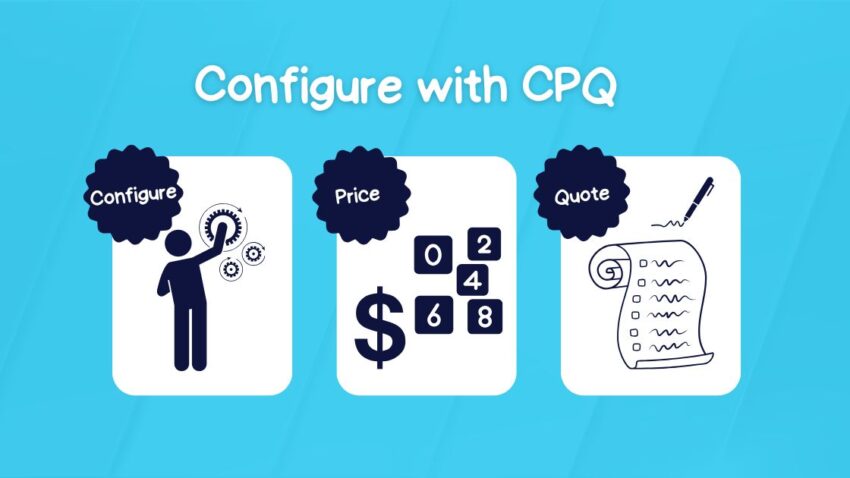In today’s fast-paced industrial landscape, manufacturers of complex equipment face a unique set of challenges. The need for customized, intricate configurations, accurate pricing, and swift quotes is greater than ever. Traditional quoting methods are no longer sufficient in an era where buyers expect instant, precise, and digital-first experiences.
Enter CPQ (Configure, Price, Quote) software—a transformative solution that is revolutionizing how industrial equipment manufacturers operate, sell, and scale. CPQ isn’t just a sales tool; it’s a strategic asset that aligns engineering, sales, and production into a seamless, automated pipeline.
What Is CPQ?
CPQ stands for Configure, Price, Quote. It refers to software that helps businesses configure complex products, accurately price them, and generate quotes quickly. CPQ solutions are particularly valuable in industries where products are not one-size-fits-all but instead tailored to specific customer requirements—such as in industrial equipment manufacturing.
CPQ platforms integrate product logic, pricing rules, and sales workflows into a centralized system. Sales teams, channel partners, or even customers can use the platform to build custom equipment configurations, ensure accuracy, and receive quotes in real time.
Why Industrial Equipment Manufacturing Needs CPQ
Industrial equipment manufacturers often deal with thousands of possible product configurations, each with interdependent parts, compatibility rules, and pricing variables. Traditional quoting methods—often reliant on spreadsheets, emails, and siloed systems—are not only inefficient but also prone to costly errors.
Here are the core challenges CPQ solves in this industry:
-
Complex Customization Requirements
-
Inaccurate or Delayed Quotes
-
Misalignment Between Sales and Engineering
-
Extended Sales Cycles
-
Lack of Pricing Consistency
-
Scalability Constraints
Key Benefits of CPQ for Industrial Equipment Manufacturing
1. Faster Quoting and Shorter Sales Cycles
One of the most immediate benefits of Industrial Equipment Manufacturing CPQ is the dramatic reduction in quoting time. By automating the configuration and pricing process, CPQ enables sales teams to generate accurate quotes in minutes rather than days or weeks.
This speed is crucial in competitive markets where buyers may solicit multiple quotes. Being the first to respond—with a professional, error-free quote—can be the difference between winning and losing a deal.
2. Improved Accuracy and Fewer Errors
Manual quoting often leads to mistakes—wrong parts, mispriced components, or invalid configurations. These errors are not only embarrassing but expensive. CPQ eliminates these risks by enforcing product rules and compatibility constraints, ensuring only valid combinations are quoted.
Moreover, integrated pricing logic ensures that all discounts, cost markups, and promotional terms are applied correctly and consistently.
3. Enhanced Collaboration Between Departments
CPQ software acts as a bridge between sales, engineering, and manufacturing. Instead of passing specs back and forth via email or paper, all teams work from a shared system. When sales configures a product, engineering automatically sees what was selected, reducing rework and production delays.
Some CPQ platforms even integrate with ERP, CRM, and CAD systems—creating a fully connected digital workflow from lead to production.
4. Support for Guided Selling
In industrial manufacturing, sales teams may not always have deep technical expertise. CPQ supports guided selling by walking users through a step-by-step configuration process. It asks the right questions and narrows down options based on use cases, technical requirements, and customer preferences.
This helps sales reps propose the best-fit solution, increasing both conversion rates and customer satisfaction.
5. Improved Pricing Strategy and Margins
With CPQ, manufacturers gain better control over pricing strategies. Rules can be established for cost-based pricing, volume discounts, regional pricing, and even dynamic pricing based on supply chain factors.
This level of control reduces rogue discounting and protects profit margins, while still giving flexibility for deal-specific negotiation.
6. Seamless Integration with Digital Commerce
Modern CPQ solutions are often designed to work with eCommerce platforms and self-service portals. This allows B2B buyers to configure equipment and request quotes online—without ever needing to speak to a salesperson.
For manufacturers looking to scale or expand into new markets, this self-service capability provides a strategic advantage.
Choosing the Right CPQ Solution
Not all CPQ platforms are created equal. For industrial manufacturers, it’s critical to select a CPQ solution that:
-
Supports complex product rules and logic
-
Integrates with ERP, CRM, and CAD systems
-
Offers a visual configurator for easier design communication
-
Enables self-service and partner portals
-
Is scalable for multiple markets and product lines
-
Provides robust analytics and reporting
Cloud-based CPQ platforms with modular architecture tend to offer the greatest flexibility and speed to deploy.
Future of CPQ in Industrial Equipment Manufacturing
The role of CPQ is expected to expand significantly in the coming years. With the rise of Industry 4.0, AI, and IoT, CPQ systems will evolve to offer predictive insights, real-time cost optimization, and AI-guided configurations.
Imagine a future where:
-
IoT sensors on equipment provide performance data to help recommend optimal configurations
-
AI algorithms analyze past deals to suggest pricing strategies that maximize win rates
-
Augmented reality (AR) visualizers allow customers to interact with virtual prototypes before purchasing
CPQ will be at the center of this transformation, serving as the command hub for smart selling and digital manufacturing.
Conclusion
CPQ is no longer a luxury for industrial equipment manufacturers—it’s a necessity. In a world where customization, speed, and digital agility define success, CPQ empowers manufacturers to meet these demands with precision and confidence.
By streamlining the quote-to-order process, eliminating errors, and enabling data-driven decisions, CPQ transforms not just the sales process, but the entire manufacturing workflow.
Industrial equipment manufacturing is complex—but selling it doesn’t have to be. With the right CPQ solution, manufacturers can unlock new levels of efficiency, profitability, and customer satisfaction.

